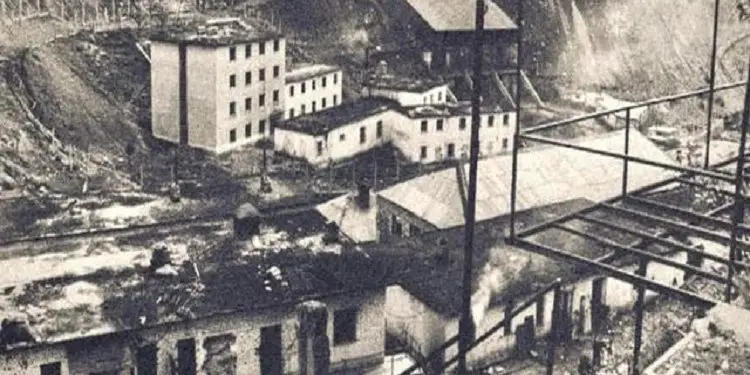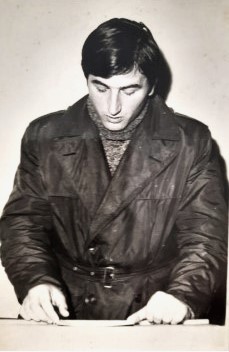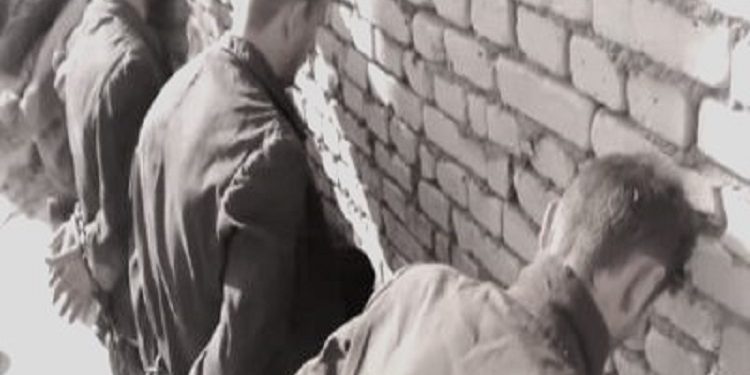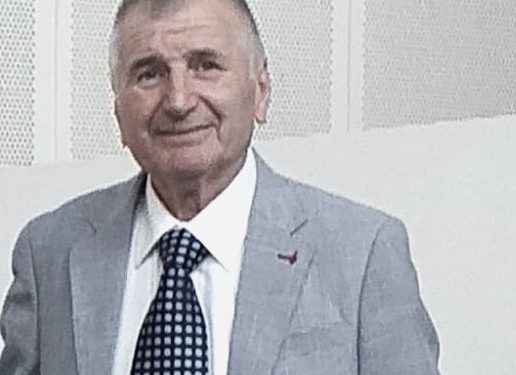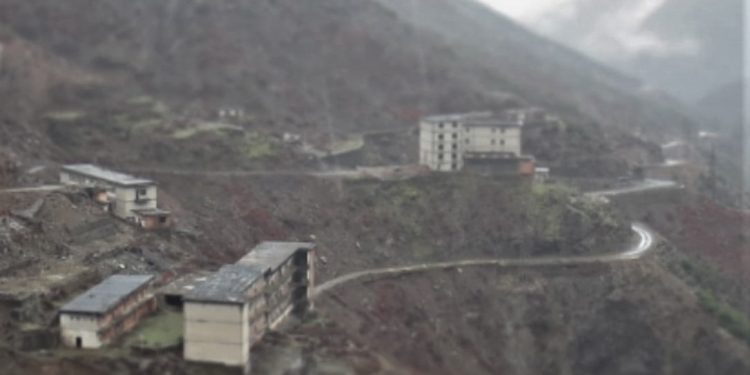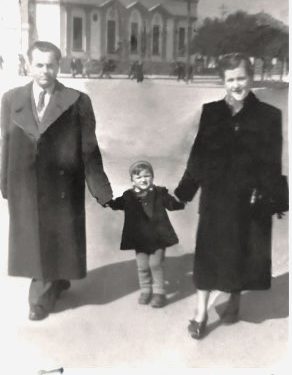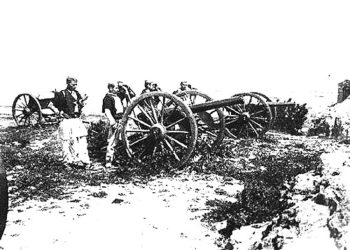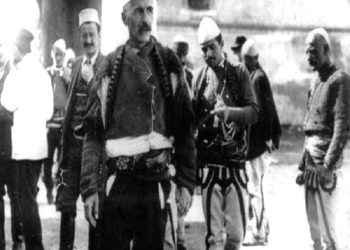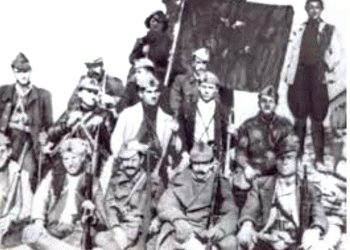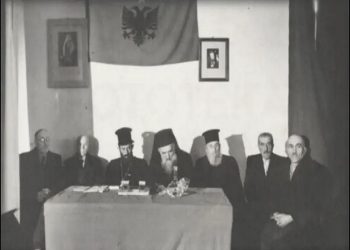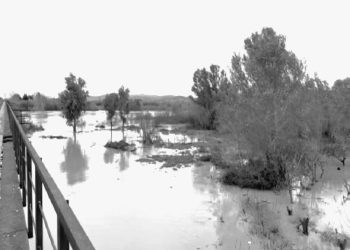By Nestor Topencharov
Part fourteen
THE DRAMA OF LIFE
(THE STORY OF A FAMILY)
I dedicate this book to: All fellow sufferers. Their families. And in particular, to people who did not have the opportunity to tell the odyssey of life, during the communist dictatorship.
FOREWORD
Memorie.al / I were born in the city of Korça, on October 22, 1953. I left Albania in October 1990, after we were given the right to repatriate to Yugoslavia (now North Macedonia) . In June 1992, I immigrated to Italy, where I still live today. Although I have been away for 32 years, I did not cut ties, as Albania was the country of my birth, where I spent 37 years, and that part of my blood is Albanian. Years later, the ties with Albania were strengthened, as I also took my wife from Durrës. We came every year on vacation, but the short time of our stay meant that many contacts were cut off. However, true friends and comrades remained forever in my heart.
In the last three years, I did not have the opportunity to visit Albania. But during 2022, I came several times. My commitment on the one hand and the coincidence on the other, made it possible for me to re-establish connections with friends and colleagues whom I had not seen for decades. Knowing my past, some of them advised me to write down what had happened in my life. At first, this idea seemed like a utopia to me, since even though I had been a good student; I had no inclination towards drafting. Then I reflected. I would just write my story, true events, where not much inspiration was needed. Perhaps a writer would know how to present these events, as a true pen artist knows. While I will write them, without many descriptions: briefly, simply, naked, as they happened.
Something else that pushed me even more to write this book was an interview on TV Klan, which I saw in October of this year, directed by the well-known journalist Blendi Fevziu. I did not seek revenge. But I didn’t even have justice. With the help of this book, I will make known to the Albanian public opinion, the role of the individuals who contributed to my suffering and that of my family. And today, I am putting my finger on these “beings”, not for the task they had, but for the way they performed it. I will start my writing with my grandfather, from my mother’s side, to continue with my father, where I will touch on the most important moments of their lives. This will help the reader to know my background.
Then I will also talk about myself. In this book I will also tell some events, one more dramatic than the other, that happened to people I had the honor of knowing. I am glad that many books have been published about the suffering and persecution of “enemies of the people” and their families in internment camps and prisons during the communist dictatorship. I was able to read some of these works. I believe that this book, in a modest way, will contribute to know even more the inhumane methods of the State Security, the way they created accusations and how they destroyed people and families to keep the people under terror.
Author
December, 2022
Continues from last issue
CHAPTER FOUR
We made the way in trucks covered with raincoats, which didn’t even have benches to sit on. We traveled worse than animals. On the way, we left the raincoat in the back of the truck to let in light and air. Through the street of Mirdita, we saw women and small children, who looked at us with hatred and shouted; “enemies”, “enemies”. We passed Repsi, Rubik in turn. After we left Milot and headed for Laç, not only the nature changed, but also the behavior of the people, who greeted us with their hands. In these moments I felt good.
Then we passed Mamurras, Fushë-Kruja and Kamza. All this way, people kept greeting us and congratulating us on returning to the family. Although it was the middle of November, the day was very beautiful and sunny. When we passed Kodër Kamzë, right in front of the Agricultural Institute, where my faculty was, the truck slowed down.
I turned my head and saw the inner street, which was full of young men and women. I wanted to come down for a few minutes, because of the nostalgia I had. During the four years of the Institute, I had spent some of the best moments of my life. I missed my friends and professors; I missed lecture halls and laboratories.
I could have gone down. Now I was “free”, but I was going to complicate my journey. At that moment, the priority was to return home. I continued the journey with the image of that sight and with hatred towards those who had destroyed my dreams, my youth and my future.
This prison that I did, (this re-education camp, as the system said), not only did not educate me with the communist doctrine, but by a peaceful man, who did not deal with politics, (since in those years politics was only done by Enver Hoxha), turned me into an enemy of the dictatorship.
They stopped us at a bar, on the way up to Qafë-Këraba, where I bought something to eat. Since there were no free tables, two local women, who were on their lunch break, invited me to their table. They were very kind and expressed their satisfaction that I was returning to the family.
When we reached Maliq, our truck took a short break, as some fellow sufferers got off. It was getting dark. At this moment, two trucks similar to ours passed by and when someone asked where they came from, the answer was; Ballshi. After a while we reached the city of Korça, where night had fallen. They dropped us off at the bus agency.
I immediately went to the post office, where I sent a telegram to Leonidha, the friend who remained in Spač. Then I took the road at a fast pace, towards the house. The main street was almost empty. When I got home, dad had just been brought in. A friend of his, Qemali, had waited and accompanied him. Mother and sister had preferred to wait at home, since we were returning from two different prisons and the schedule was unknown. It was a great joy for them.
Even I, after more than six years, felt good, that I was entering the house. After a while, my father’s friend greeted us and left. After we helped dad wash, I took a shower too. When we sat down at the table, my father did not speak, but looked at me with a melancholy expression. They had ruined his health. I had been deprived of my father for many years, but even now this father was far away from me. I realized that the family we once were would never come back. After I was arrested, I told him mainly about my sufferings, after I was arrested, both in the Korça Branch and in Spac.
Father, he had also spent these years in Ballsh. Depression had accompanied him all the time. As I told you above, always under the care of fellow sufferers. He was an old man, whose health had been destroyed. Not only did they not release him, but they also did not treat him.
Convicts such as the father, the painter Vangjush Tushi, (I had seen his health condition in Kaush) and others, elderly or not, with serious physical and mental health problems, were not suitable to be kept in these structures. That power, there was no human particle. It is understood. It was the power of the dictatorship.
On the other hand, the life of mom and Ivana had been hell. After my arrest, my mother became very weak; her body was broken in two and covered with spots. After all those checks and psychological pressures, they had to face life with economic difficulties, with their husband and son, in two prisons. This forced them to take different routes to meet us. They had also faced the opinion of the people, the bad treatment from the neighborhood and the government authorities.
In terms of work, construction and reclamation were reserved for Ivana. He told me that in the construction sites, there were those technicians who had maintained respect for the father and had tried to make his work easier without being noticed. Later, in reclamation, Marjana, the technician, made her a close friend. A few years later, the sister moved to the Canning Factory, in the pickle department, with Sokrat Tasho in charge, who had appreciated her work and protected her in difficult moments.
In one case, the driver of a vehicle belonging to the district Party Committee, who had gone to pick up pickles for some leaders who had come from Tirana, recognized him and reported him to the party secretary of the company. Afterwards, Socrates was asked to account that, my sister, she could poison the pickles.
Ivana’s supervisor had confronted him and taken responsibility. He had become a guarantor, praising his sister’s work that this work was done only by her. I take the opportunity to thank this good man and his whole family, who have loved and respected my sister.
This condition and others of this form, kept Ivana in constant tension, not to mention provocations of other natures, to a girl who was hit at the age of 19. When she took her leave, her detours were Ballshi and Spaçi. Often the trucks for Reps and Spaç had orders not to take them, since they were; “family of enemies”.
Many times, they did the last part of the road from Saint Paul on foot (the sister often organized with women who had family in Spač). It had happened that the only hotel in Rrëshen was full, and she had been forced to leave.
The conclusion?
Even they, all these years, had seen hell. A few days after my release, I went out for a walk. Everything seemed different to me. The city and the people with their different voices and clothes. For more than six years, the eye was accustomed to the sight of that sad panorama of the prison, with the suffering faces and the same brown clothes.
The ears were unaccustomed to female voices, which for a period, to me, all had the same timbre. I tried not to look people in the eye, because a familiar face might appear and I didn’t know what attitude they would have. At least in Spac, we were all the same, (political prisoners). I had a motto: Do not greet anyone, but first wait for the behavior of the acquaintance, so as not to be left behind.
I was right, as the reaction of the people who knew I was different. Someone saw me as an enemy; someone else did not speak to me out of fear. Others gave me a greeting from afar, with a nod. Someone, like a high school friend, after shaking my hand, expressed surprise that I had made that “mistake”.
– “We were very friends”, – I told him.
And then I added: – “When you have this opinion about me, what should someone else, who has not known me, say”?!
In the summer of 1990, when we were waiting for the visa for Yugoslavia, this friend had just returned as a tourist from Greece. When he met me, he congratulated me on the imminent repatriation, adding that we would be saved; we would come to another world.
In the following days, some of my mother’s cousins and friends, Ivana’s friends, and some families who had maintained friendship began to arrive. I want to thank all of them, especially the two sisters, Athina and Dhimitra (my cousins), who stayed close to me throughout the difficult time, regardless of the pressure put on them by the Security, not to visit us.
In that difficult period, some families kept the door open for us. One of these was that of Professor Ilia Karanxha. Ilka and her wife, Farida, have always been present. I take the opportunity to express my gratitude and thanks.
Only a few days had passed since I was released, and one dinner they brought me from the neighborhood, the worksheet for agriculture, in the “Korça” Agricultural Enterprise. This time in the Center sector. It was December 1st, when I showed up at the company and was assigned to Adem’s brigade. He was an elderly man. At that time of the year, men dug ditches in the fields to make drainage. He gave me a belt and showed me the direction of the field, where he would work. After I was assigned the part, I started to cross the first waist.
After a while the channel was filled with water and my work became very difficult, as the mud stuck to the work tool. I took a break from lunch and ate the bread I had brought with me. I continued to work all afternoon. I was left alone, as everyone else had done the norm. They had worked in groups enough. When the person in charge of recording the work came later, I had done about 70% of the rate. When he saw me with my feet in the water and realized that I had no idea about that job, he explained to me how to avoid the water.
Then he closed the conversation, that for that day, everything was fine and that we would see each other the next day. The next day, something better. But a few days had to pass before I was able to do the norm. I had worked with a shovel in mining, but here in agriculture, it was a different work process. One day, Ahmeti, this young man with red hair, who recorded the work done, told me that you had completed those days below the norm. I thanked this man for his humanity. He spent that month in that brigade.
In January, Ademi, a brigadier, communicated to me from the head of the sector that I was being transferred to another brigade. For brigadier I had Yllin, a young boy, who was a member of the party. His brigade, as a brigade of fodder plants dedicated to livestock, did the most difficult work and the lands were far away, on the border with the village of Çiflig. But even in this case, the distance was not a problem for me. Most of the workers were from the village. The exception was some old men who had been engaged in agriculture all their lives. At that time I was 29 years old, but in the brigade they took me for a discharged soldier, since I was bald and thin, I did not show my age.
When I was released from prison, I weighed 65 kg. I had lost at least 10 kg. My suit pants were too wide. I had to take them to the tailor. I was familiar with Vaskë Orgocka in Spaç. He and his family were hit hard by the dictatorship. This too, another tragic story…!
When I was released, I went to his parents, who lived not far from my house, to say goodbye to my son. Ivana and Vaska’s daughter had been in the same class in high school. Since Vaska’s father used to sew at home, I took the pants to him to have them narrowed. After a few years, these pants didn’t fit me anymore.
When spring started, I was assigned to gather grass behind the Cossacks. After the corn germinated, the harvest began. It was a bent-back job, since when you got to the end of the plot; you could hardly straighten your back. One day, the sector zoo technician comes to our brigade. He was looking for a worker for the cowshed, as there was a shortage of personnel. None of the brigade expressed the desire to come.
Then I thought that it could be an opportunity to bring you closer to livestock. When I expressed my willingness, he asked me if I had worked in this sector. He was pleased when he found out that I had studied. After he put his arm around me and we headed towards the stables, he proceeded to ask me about my education. At this moment, the manager of the sector, Vera, asks Vasili where he was taking me. When he found out the reason, he ordered:
– “Not that”!
Deserted, he thought he had found the right man.
He tried to explain my school to him, but Vera was adamant:
– “Not that”!
I felt sorry for Vasili. He was old in age, on the verge of retirement. I told her that the manager was right, and left. I remember his surprised face, which at that moment did not understand the reason. It didn’t feel good, but it was the beginning, I had to wait a little longer.
Based on the propaganda that was made, those who had studied in non-ideological fields could work in the profession. Those who had three high grades could work as a secondary livestock technician. I was almost out of college. Months passed, summer and autumn passed. I was now well acquainted with the whole brigade. They loved and respected me. I started working in agriculture. When the drainages began in the winter months, I was taken to the group, where we became the fifth.
They were all from the villages near the enterprise. Three of them, 23-24 years old, while the oldest, Isufi, was around 40. Out of respect they used to say; uncle We were all strong and we did the norm quickly. There were often times when we worked in the fields far from the tool warehouse, and I was obliged to take the shovel home with me after I finished the work.
Although “work is an honor”, I did not feel well when, with a shovel in my hand and boots on, I crossed the boulevard to go home. (I tried to avoid the main roads, but I had to, since my house was in the center of the city). Those were the hours when many citizens went out for a walk. Among them I saw familiar people with their families and I felt sorry for myself.
The next spring came and the mowing of the grass began. One day Vasili comes, pulls me aside and offers me a job at the scales. For him, having a regular person in that workplace was very important. Every day, several cartloads of grass were weighed there, and based on the amount, the weight of this grass; the amount of milk production was required. After having doubts about those who had worked before, they had decided, together with the person in charge, to appoint me this time. I thanked him for his trust.
I thought this would be a step forward, to systematize. But even this spark was immediately extinguished. The next day, dressed differently, I went to the scale, where the man who was working told me that I had to report to the manager of the sector. She expressed regret for what happened. It was ordered by the chief of staff. I returned to the brigade. A few months passed and at the end of autumn, the sugar beet plucking began. Memorie.al
The next issue follows




